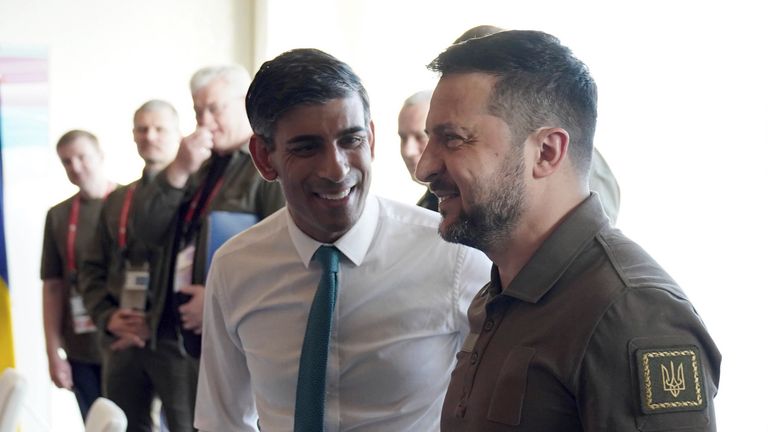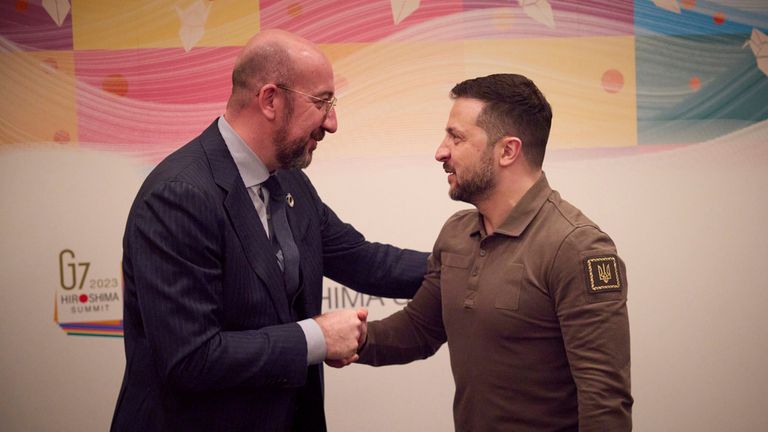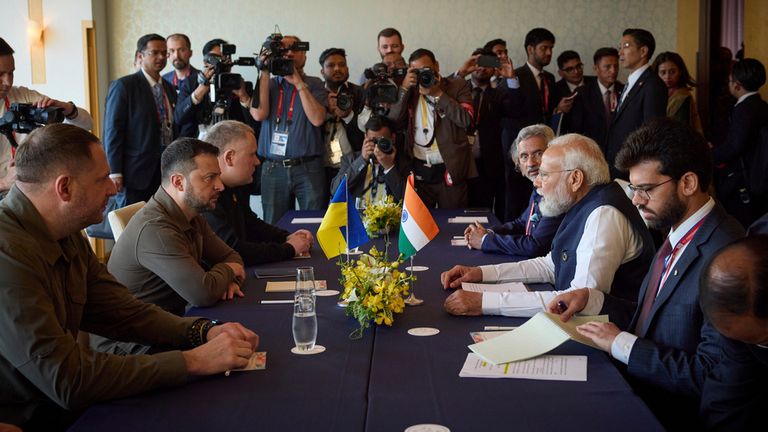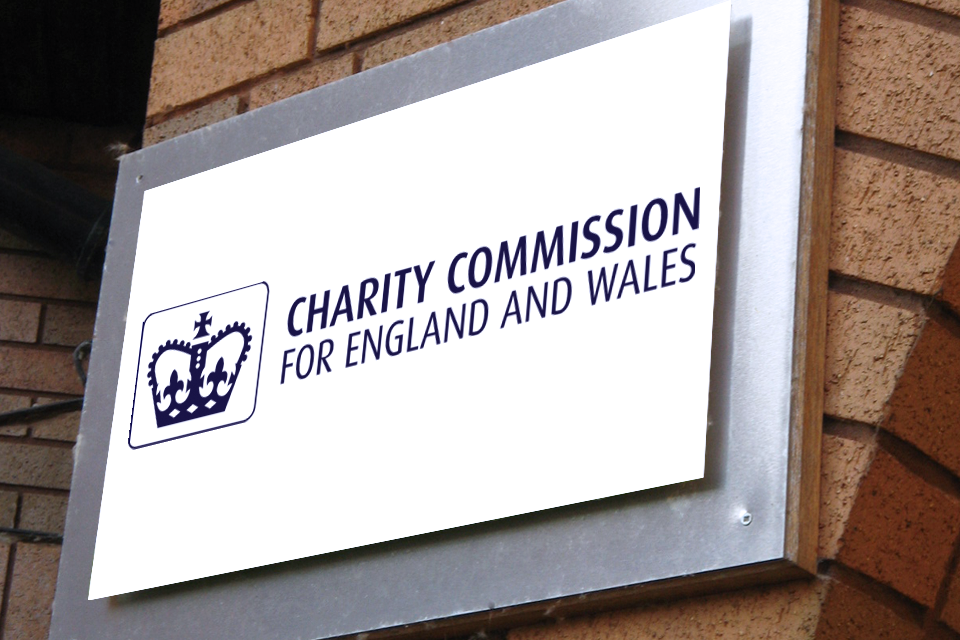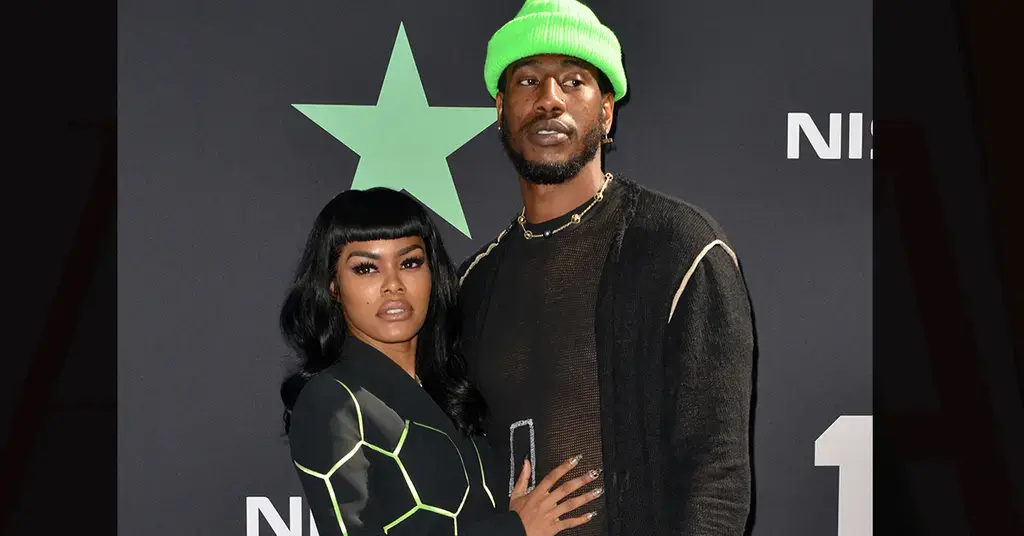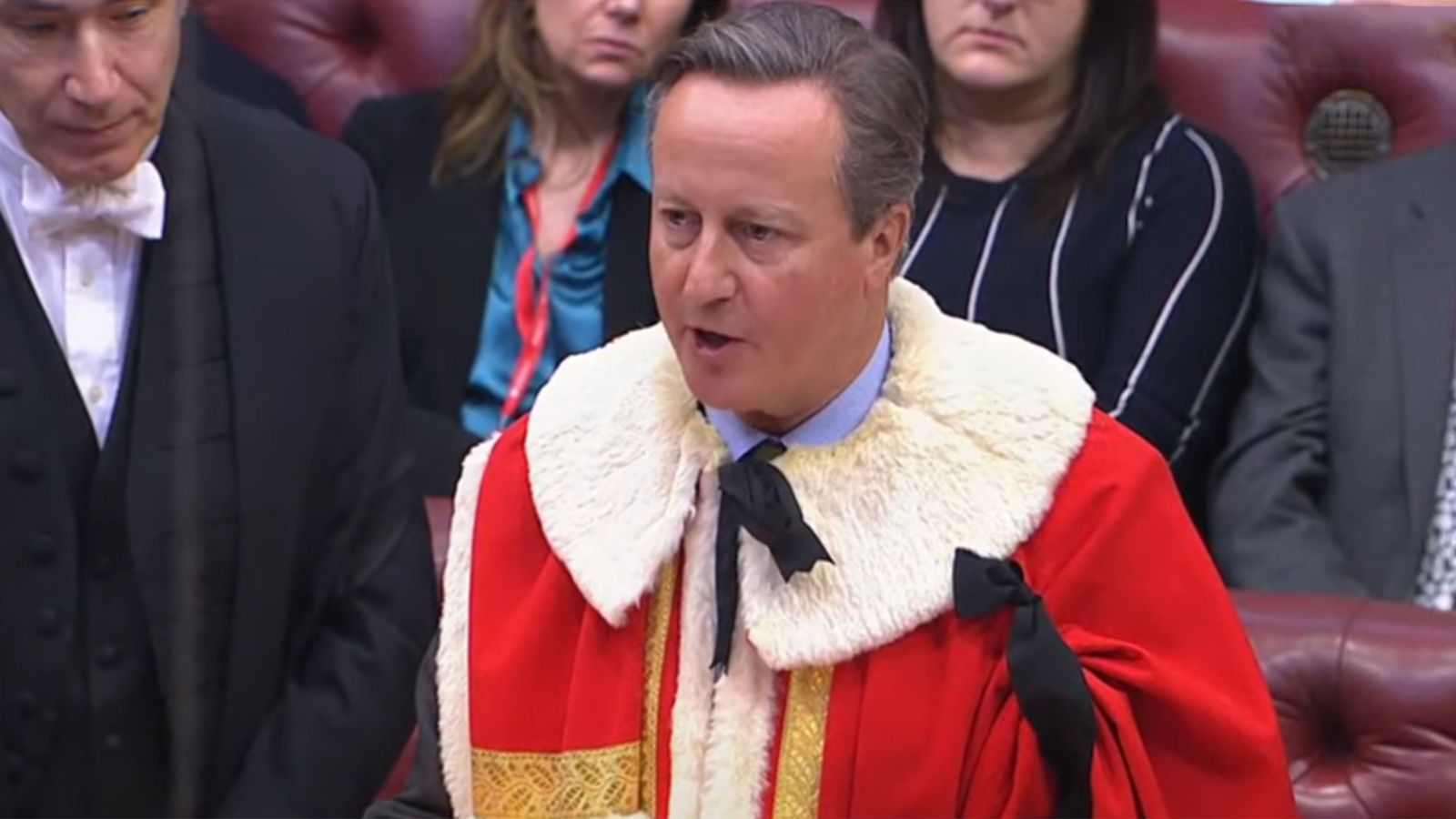G7 leaders’ summit in Japan stands out as memorable – and not just because Zelenskyy jetted in | Politics News
There have been plenty of memorable G7s – for the wrong reasons.
There was Biarritz in 2019, when then President Trump rowed with allies and there was even talk that, for the first time since meetings began in 1975, there wouldn’t be a joint final statement – though in the end they scraped something together.
In the 2017 gathering in the Sicilian town of Taormina, the win was that Trump turned up at all, as he billed that particular summit as the “most challenging G7 in years” (he was at loggerheads with allies over climate change and trade).
Then how can anyone forget the summit in Cornwall, where President Macron and host, then Prime Minister Boris Johnson, ended up in a Brexit bust-up over Northern Ireland trade arrangements.
The Hiroshima summit couldn’t be more different. These past two days in Japan have been all about standing united in the face of present and future threats.
The world’s most powerful democracies are laser-focused on trying to protect the principles of the post-war world order: standing shoulder-to-shoulder – literally – with President Zelenskyy and Ukraine, and jointly criticising China over its increasing military and economic aggression.
On Ukraine, allies were hand-in-glove and falling over each other to glad-hand President Zelenskyy as he flew into Hiroshima to attend the summit in person, rather than via by video link.
He arrived on a French plane, although I’ve been told the idea for his to come in person was made by Prime Minister Sunak last month.
US President Joe Biden told G7 leaders on Friday that the US will back a joint effort to train Ukrainian pilots for F-16 fighter jets, and will not oppose any allies that wish to transfer fighter jets.
A plan that could take months to realise, it nevertheless fulfils a request President Zelenskyy has long made as part of his war efforts, and reflects a longer-term commitment on the part of allies to make sure Ukraine can better defend itself.
As for future threats, the G7 also stood united on China, issuing its strongest condemnation yet of the superpower in the joint communique from this summit.
There had been talk coming into this meeting of tensions over Beijing, as President Biden warned he’d be prepared to use US military might to defend Taiwan against China, while President Macron insisted Europe should “not get caught up in crises that are not ours” on a visit to China last month.
But as it was, the G7 issued a strongly worded statement on China, warning Beijing about its increasing economic and military aggression: they said they were “seriously concerned” about the situation in the East and South China seas – while also urging China to press Russia to withdraw from Ukraine.
Read more:
Russia’s economy has weathered the West’s sanctions – but how?
Fresh sanctions for those helping Russian oligarchs
Have economic sanctions on Russia actually worked?
The unity is a sign that these allies are prepared to put aside smaller disputes in order to tackle far greater threats.
The F-16 decision over this weekend is a sign that allied nations are now in this for the long haul.
That the G7 wants to provide Ukraine with this military capability points to what Rishi Sunak spoke about to journalists on the flight over to Japan: providing “longer-term security arrangements… to provide Ukraine with deterrence in the future”.
In other words, the G7 perhaps believes that even if there is a negotiated settlement, Ukraine will need long-term capabilities to deter Russia.
Providing these jets is a sign that allies believe some level of conflict could continue for years, if not longer. Fighting on two fronts, the last thing the G7 needs is to be fighting from within.
